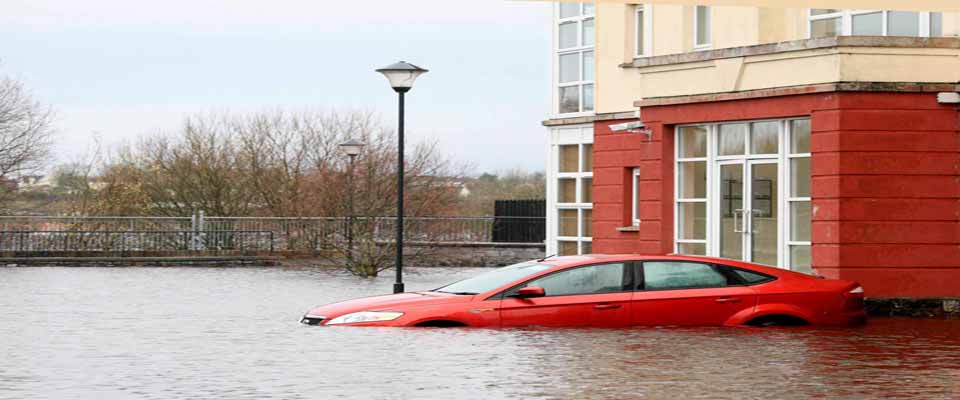With many parts of the west of Ireland and the midlands caught up with flooding at present and more heavy rains scheduled for this weekend, MyHome.ie decided to look at a few tips you can take to secure your home against water damage.
Water in a home is a worst nightmare scenario for many and can cause countless amounts of damage which may not be covered on an insurance policy.
The lasting effects can be everything from mould to a smell of dampness persisting long after the water has been removed.
It’s hard to ever have the upper hand on mother nature but these few tips might help save you some heartache…
- To help prevent flooding check that outside drains and gullies are clear and free running.
- If you live in an area that has flooded before, then:
- Move your car, lawnmowers, etc. to higher ground.
- Move any furniture, valuable items and electrical items upstairs if you can.
- Seal any delicate items in plastic bags.
- If you have a basement make sure everything is stored there at least 20cm off the floor or bring upstairs if possible.
- Prepare a flood kit of essential items i.e. mop and buckets domestic detergent and disinfectant, rubber boots, gloves and protective clothing, also include a waterproof torch and radio.
- Be familiar how and where to turn off the gas, electric and water mains supplies, particularly if having to evacuate the property.
- Have warm clothes and blankets at the ready and store some non-perishable food supplies and drinks upstairs, or in a container which can not be contaminated by flood water.
- Block plug holes and weigh down with heavy objects.
- Place sand bags in toilets to prevent backflow.
- If possible raise furniture off the floor using bricks or boxes.
- Use sandbags pre-flood, they are of no use once the property has flooded, consider all entry points such as air bricks, utility service points, cable entry points. Place bags in layers (like a brick wall) stamp them in well to eliminate gaps and create a tight seal.
If your home suffers water damage, then:
- Make sure you turn off all electrical power at the mains and then unplug appliances.
- Turn off water supplies at the mains.
- If you can, clear out all drains and gullies to help drainage.
- Once the water has gone, remove all floor coverings, ventilate the house and dry out slowly using dehumidifiers if possible.
- Make any emergency repairs you can.
- Don’t throw out any damaged items because they may need to be inspected.
- Call an electrician to have your electrical system checked before you turn the power back on.
- If you have to evacuate agree where you will go and how to keep in contact with family and friends.
- If possible avoid contact with flood water and do not attempt to wade through deep water as it will be difficult to identify hazards such as raised manhole covers.
Advertisement





